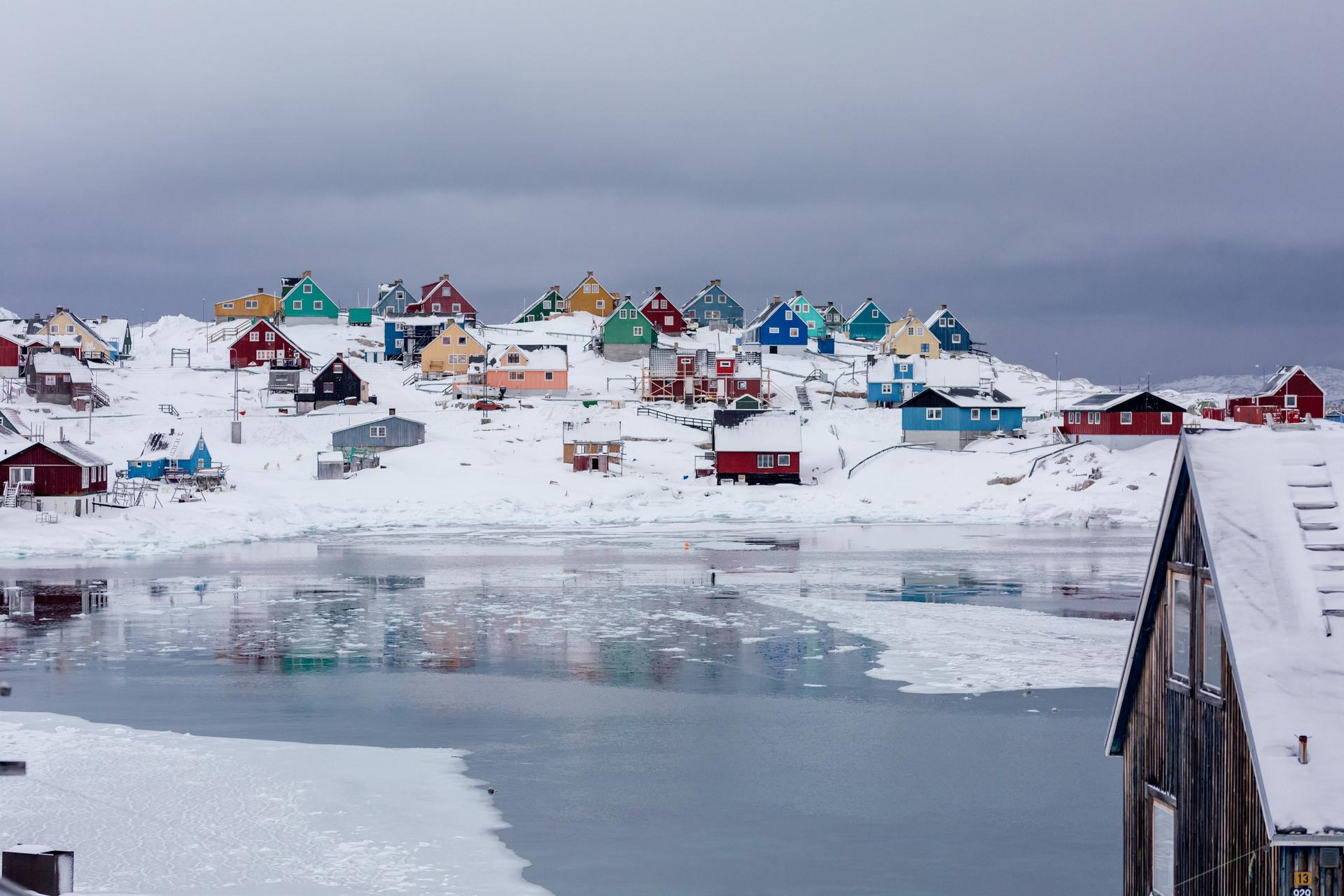Greenland🇬🇱

Greenland, the world's largest island, is situated in the northernmost part of North America in the Arctic. It has no bordering countries and is parted from Canada by the Baffin Bay. The country is known for its icy landscapes, sparse population and stunning Northern Lights phenomenon. Greenland's vast, largely untouched environment is shrouded in a pristine mystique, with its valleys, fjords, glaciers and wildlife like whales, polar bears, reindeers, making it a true paradise for nature enthusiasts. The country's capital, Nuuk, offers a glimpse into the Greenlandic culture via the National Museum.
⚠️Things you should avoid⚠️
- Avoid traveling without a guide to remote areas due to unpredictable weather and lack of infrastructure.
- Do not disrespect local customs and traditions.
- Do not interact with wildlife without expert supervision.
- Avoid unnecessary travels during the harsh winter due to limited daylight and severe weather conditions.
- Avoid littering and treat the beautiful, fragile natural environment with respect.
- Do not approach glaciers or icebergs too closely as they can flip or calve unexpectedly.
- It's illegal to buy or sell marijuana, avoid any involvement with illegal drugs.
- Avoid tap water in remote areas without confirming its quality.
- Do not hike alone in the wilderness without letting someone know your plans.
- Do not rely on credit cards alone for payments, as not all places accept them.
Overall
8
Crime 🔫
6
Greenland has an overall low crime rate. Minor crimes, like petty theft and vandalism, do occur mainly in urban areas like Nuuk. Violent crimes are rare but domestic violence incidents have been reported. Foreign tourists are not specific targets for crimes.
Terrorism 💣
10
Greenland has experienced no known incidents of terrorism, nor does it have any known resident terrorist groups. The risk of terrorism is incredibly low given the country’s geopolitical position and low population density.
War ⚔️
10
Greenland has had no historical instances of war or armed conflict. The country enjoys peaceful domestic and foreign relations.
Natural Disasters 🌊
8
Greenland experiences very few natural disasters. Avalanches and tsunami owing to glacial calving have been reported in the past. Major earthquakes are uncommon but the risk exists due to its location near the tectonic plate boundaries.
Medical Care 🏥
7
Medical facilities in Greenland are limited and specialized treatment is often not available. While basic healthcare is of good standard, serious medical conditions often result in evacuation to Denmark.
Tap Water Quality 💧
10
The tap water in Greenland is of high quality. It typically comes directly from fresh mountain streams and is safe to drink.
Disease Burden 🤒
8
Greenland has no prevalent or endemic diseases. However, mental health problems and alcoholism constitute a significant disease burden.
Corruption 💸
9
Greenland generally has a low level of corruption. Instances of corruption are uncommon and the legislation enacted by the government is effective in dealing with any anomalies.
Safety for Women ♀️
6
Generally, Greenland is considered safe for women. That said, instances of domestic violence are comparatively high, and women are advised to exercise usual caution, particularly during the night.
Safety for Queer People 👬
8
Greenland is progressive toward LGBTQ+ rights. The queer community is generally well accepted in Greenlandic society.
Censorship 📺
10
Freedom of speech and press are respected in Greenland. The media is independent, and internet access is unrestricted.
Public Transportation 🚌
9
Public transportation options are limited but of a good standard. Busses, boats, and helicopters are often used given the country's geographical peculiarities. There's no notable incidence of accidents.
Other useful information
🔒 How safe is it?
Greenland is generally safe but visitors should stay alert to changing weather conditions and the country's challenging geography. It is advised to take guides along for exploration of remote areas. The incidence of crime is low, however, exercise standard vigilance.
🏰 Embassies in this Country
There are no foreign embassies in Greenland. The country is a part of the Kingdom of Denmark and foreign diplomatic matters are handled by the embassies in Denmark.
💉 Recommended Vaccinations
Routine vaccines such as MMR, DPT, Chickenpox, Polio should be up to date. Hepatitis A and B and Rabies vaccinations are also recommended.
🐍 Dangerous Animals
The fauna of Greenland includes species like polar bears, arctic foxes and musk oxen. These animals are usually found in the wilderness and not a threat if normal caution is taken.
🛂 Visa Requirements
Greenland is not part of the Schengen area, hence separate visa is required for most foreigners, unless from Nordic countries.
💲 Currency
Greenland uses Danish Krone (DKK) as its currency. Money can be exchanged in banks, post offices and larger hotels. ATM's are also available mainly in larger towns.
💳 Credit Card Acceptance
Credit cards are widely accepted in Greenland in hotels, restaurants and larger stores. However, in small towns and villages, it's recommended to have cash on hand.
🧑🏭 Is it possible to work and travel in this country?
Greenland is not a traditional work and travel destination, due to its weather, limited population and job opportunities. However, in certain industries like tourism and fishing there might be seasonal work opportunities for foreigners.
💵 Cost of Travel and Living
Greenland is quite expensive in terms of travel and living expenses. The high costs are primarily due to the country’s remote location and lack of infrastructure.